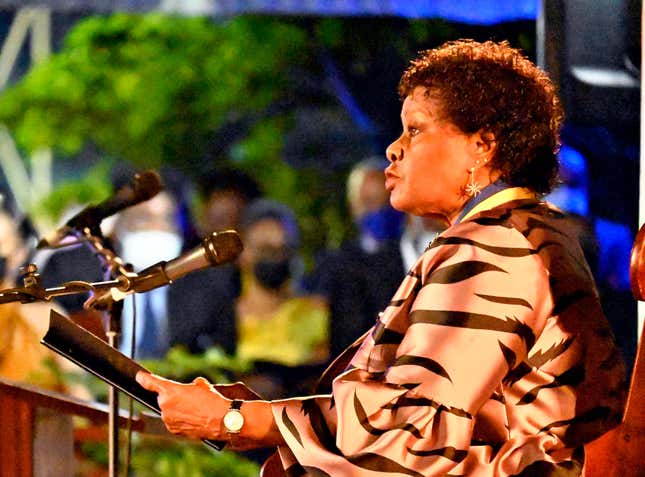
Will the death of Queen Elizabeth II bring about the end of colonial ties to the British Monarchy in more majority Black nations around the world?
The 96-year-old queen’s death comes as some majority-Black nations in the Caribbean and elsewhere reevaluate their association to crown. Great Britain maintains a close relationship with many of its former colonies through the Commonwealth of Nations, a bloc of 56 countries, some of which still recognize the head of the British monarchy as their official head of state—even if they have their own elected governments.
Antigua and Barbuda, Jamaica, the Bahamas, Saint Kitts and Nevis, Saint Lucia, Saint Vincent and the Grenadines and Grenada are all Caribbean islands that still recognize the British monarch as their head-of-state.
But numerous Black-majority former British colonies, most recently Barbados, have disassociated themselves from the crown over the years, with leaders and activists in those nations citing the monarchy’s ties to slavery and their continued economic exploitation following the end of the slave trade. Queen Elizabeth II’s passing means the ascension of King Charles, a less popular figure on the global stage, at the same time as those discussions continue.
In March of this year, a group of 100 Jamaican political activists published an open letter to Prince William, the deceased queen’s oldest grandson, demanding reparations and discouraging a visit to the island to commemorate the queen’s 70th anniversary on the throne.
“We see no reason to celebrate 70 years of the ascension of your grandmother to the British throne because her leadership, and that of her predecessors, have perpetuated the greatest human rights tragedy in the history of humankind,” they wrote.
“During her 70 years on the throne, your grandmother has done nothing to redress and atone for the suffering of our ancestors that took place during her reign and/or during the entire period of British trafficking of Africans, enslavement, indentureship and colonialization.”
Prince William still made the trip, giving a speech that condemned what he called “the horrors of slavery.”
But Jamaica didn’t officially remove the queen as its head of state as the island nation of Barbados did last November. That country kicked the monarchy to the curb after 400 years, establishing itself as a republic and installing its first-ever president, Sandra Mason. Barbados is now building a museum to commemorate the victims of the trans-Atlantic slave trade.

